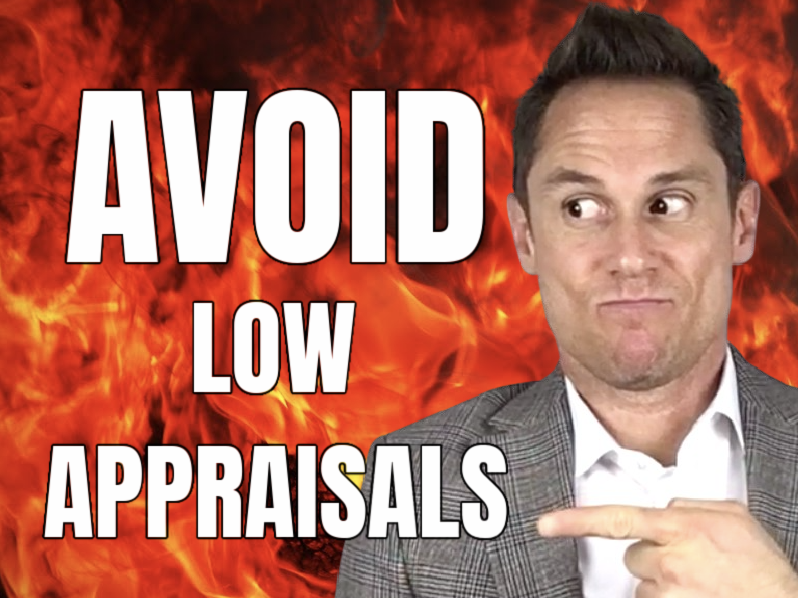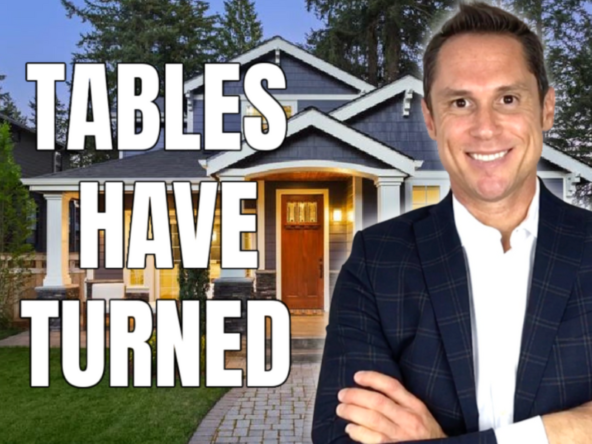What do they look for in a home appraisal?
If you’re selling your home, having it appraised can be a bit intimidating. We take pride in our homes and having an outsider come in to judge what it’s worth can feel weird.
If you’re selling your property it’s most likely going to be appraised. The only time it might not be appraised is if the buyer isn’t financing and they’re paying cash. Even then a buyer’s most likely going to want an appraisal done to make sure they’re not overpaying. If the buyer is financing their lender will require an appraisal from a third-party, professional appraiser to determine the value.
An appraiser’s opinion is going to be emotion-free and based solely on the market and the condition of your home.
Even though you have no say as to what your home is worth, it’s definitely worth knowing what an appraiser is going to look for so you can stack the deck in your favor to get the highest value possible.
Aside from having the pride of your home appraising for a high value, another reason you want your home to appraise for as much as possible is that if, for some reason, it doesn’t appraise for the purchase price it could open a can of worms because a mortgage company will not give a home loan to a buyer based on more than what it appraises for.
With that said, an appraiser will look at several factors to determine a home’s value, the first being the exterior.
How the Home’s Exterior Affects the Appraisal
The skeleton of a home consists of the foundation, the walls, and a roof. Metaphorically speaking, the appraiser’s going to review the state and condition of these 3 things under a microscope.
They’re going to look for any shortcomings in the general construction of the home and any deterioration in these areas.
For example, if there are any issues with the roof or the foundation it can easily make the home unlivable. If it’s unlivable the lender will require the problem to be repaired to lend money to the buyer.
Essentially, the appraiser’s trying to confirm the sales price is fair for everybody involved. That being the buyer, the seller, and the lender.
Namely the lender since they’re lending the money to make the purchase possible. It’s important to note, the appraiser will be turning the appraisal report into the lender to ensure they’re not lending based on more than it’s worth.
Size Matters in Real Estate
Since people tend to prefer bigger homes and larger lots, the size of your home is an important factor an appraiser’s going to look at. In general, the more bedrooms, bathrooms, and living space, the higher the value of your home will be.
Another important thing an appraiser is going to look at is the total square footage of the lot. All things being equal, if a home has more lot space it will add to the property’s value bc it gives homebuyers options. They’ll have options to expand and add an extra room or pool, for example.
Interior Condition Will Affect a Home’s Appraised Value
When an appraiser assesses the value of a home, the interior condition is equally important as the exterior. The appraiser’s going to look closely at the doors, windows, flooring, walls, plumbing, electrical system, the kitchen, and the bathrooms. They’re even going to look at the light fixtures you’ve put in and the appliances of your home.
Home Improvements
Aside from the original construction of a home, an appraiser’s going to be highly interested in any improvements made and the quality of the workmanship.
If you’ve upgraded the kitchen or the bathroom, installed new flooring or appliances, or installed a new Heating, Ventilation, and Air-Conditioning (HVAC) system the appraiser will take these things into consideration to determine the overall value.
Not only are well-done renovations and new appliances attractive to buyers, but lenders also value these upgrades. Certain upgrades can add to a property’s long-term value. For example, new flooring, countertops, and cabinetry in a kitchen could extend a kitchen’s life an extra decade or two.
Additions and Extras
The additional features that make your home unique or appealing will also be taken into consideration.
For example, if you’re in a hot climate and your home has a pool that’s in good shape it will add value to your home compared to an equal property that doesn’t have a pool.
Even things you might take for granted like a security system, fireplace, garage, or insulated windows can increase the value.
How Do Appraisers Determine Market Value?
When it comes to calculating the market value of a home, appraisers use what’s known as the sales comparison approach. This is also known as the comparable sales approach.
In the comparable sales approach, the appraiser will compare your house to properties that are the closest in distance to yours that have sold within the last 3 months. Ideally, the properties they compare yours to will be within a mile and not over any major barriers like a freeway, a river, or railroad tracks.
An appraiser’s going to compare your home to others that are similar to yours. For example, if you’re selling a detached single-family residence with one story the comparables (comps) should be other detached single-family homes with one story and not an attached home with 2 stories or even a condo.
The appraiser will then make adjustments based on the features and characteristics of the property. For instance, they’ll look at the 3 most recent comps that sold last month and adjust upward if your home has a bigger lot or adjust downward if it has fewer bedrooms or needs maintenance.
There are multiple things an appraiser might need to adjust for when comparing your home to the comps. Ultimately, the value is going to be based on recent comp sales, location, age, condition, amenities, and current market trends.
Low Real Estate Appraisals
Unfortunately, sometimes a home doesn’t appraise for the sales price the buyer has agreed to pay. Since the lender won’t lend on more than what the home appraises for, things can get interesting. The buyer will have to pay the difference between the sales price and appraised value out of pocket, the seller will have to lower the price to the appraised value, or a happy medium will need to be negotiated.
In a normal market, the chances of a buyer paying more than the appraised value are pretty slim. However, when there are lots of buyers and limited inventory it’s pretty common for buyers to pay the difference.
Prevent Low Real Estate Appraisals
When an appraisal value comes in lower than the sales price it can definitely derail a transaction. It’s not ideal for the seller because they want to sell for as much as they can. Buyers don’t welcome low appraisals either because they don’t want to overpay for a home.
There are things you can do to help avoid having a low appraisal.
1. Make a List of Upgrades and Extras For the Appraiser
No matter how much an appraiser pays attention to detail, they might miss a few things. Your real estate agent should help make the appraiser’s job as easy as possible by providing them with this list. Include all the upgrades, improvements, and extras you’ve added to the house.
This will minimize the chances of the appraiser missing anything you’ve done to the home during the appraisal process.
If you decide to do a “For Sale By Owner (FSBO)” you can provide the appraiser with this list.
Some things that will be important to the appraiser would be if you replaced the roof, installed new siding, upgraded the HVAC system, or upgraded the kitchen or the bathrooms.
2. Declutter and Clean the Home
Clean your house and remove anything that is out of place to ensure it’s uncluttered. You want to allow easy access to all areas. Also, you want your home to make a good first impression on the appraiser.
Even though a clutter-free and organized home might not be accounted for in the appraisal report, it could matter. The appraiser is still human and the presentation will subconsciously make them feel positively about your home or not.
When the appraiser’s back at their office putting together the appraisal report you want them to think “You know, that was a really nice house!” instead of having to race into the shower because your home was extremely filthy.
3. Do Basic Landscaping
For the same reasons you want to have a clean and clutter-free home, you also want to make sure your yard is in order. You don’t want to have children’s toys or junk scattered all over a sloppy backyard.
Take the time to clean it up. Throw away any dog waste, mow the lawn, and trim the bushes or hedges. Even though these things have nothing to do with more important factors like square footage size and bedroom or bathroom count, it will have a positive psychological impact on the appraiser when it comes to assessing the value of your home.
4. Make Minor Repairs
If you can invest in an hours worth of a handyman’s time to make any minor repairs do it. Tightening any loose door handles or repairing leaky faucets are easy fixes. It’s the little things in life.
An appraiser might notice any small issues. If you fix any of these problems upfront it can help optimize your home’s value.
5. Help the Appraiser
II recommend having your realtor provide the appraiser with any information on comps. Anything you can do to make their job easier will be appreciated.
You can’t assume the appraiser has seen the comps, but your agent most likely has. If they’re a local real estate agent it can be a huge advantage because they’ll be able to provide the appraiser with any important information about the comps to make sure it appraises for the proper value.
Real Estate Assessed Value
Sometimes people are confused as to what is the actual value of a property. For example, a home’s assessed value is often mistaken for the true market value.
A property’s market value is the estimated amount active buyers would currently be willing to pay for a home. How do you know this? You know this based on what buyers have recently paid for homes similar to yours within 1 mile of your home within the last 90 days. This is what the appraiser takes into consideration when appraising a home.
A home’s assessed value, on the other hand, refers to the assigned value the government uses to determine property taxes. It has nothing to do with the market value. The government isn’t going to purchase your home so an appraiser isn’t going to consider a home’s assessed value when putting together the appraisal report.
Home Search Site Values
Since we’re on the topic of things that confuse people, appraisers don’t factor home value estimates into an appraised value. Home values Zillow, Redfin, or Realtor.com aren’t accurate.
Zillow even says so on their website. Per zillow.com, “The nationwide median error rate for the Zestimate for off-market homes has a median error rate of 7.5%”.
Now 7.5% may not seem like much, but if you’re living in Orange County, California where the average home price is in the high 800’s, it’s significant.
If it’s off by 7.5% in either direction, the home estimate could be as high as $860K or as low as $740K. That’s a $120K swing… and that’s being conservative!
If you’re like most people, you don’t want to mess around with your money. Don’t look at fake numbers and take the home value estimates on home search sites too seriously.





